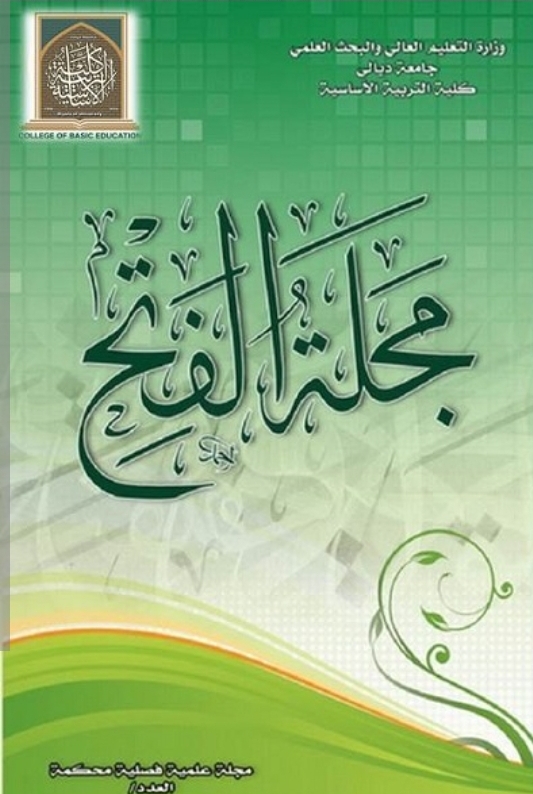Types of suspension when Almjodin and ills
Abstract
The Almighty says in His Noble Book: He is in the fire of Hell, and God does not guide the wrongdoing people} (At-Tawbah 109). And here I am basing my research on piety from God and pleasure, asking the Lord for satisfaction and acceptance, for it is a beautiful thing for a person to think, and to strive his thought in order to benefit people, whether with knowledge or action. This is what prompted me to choose a research that would benefit the reader, so I turned to the Qur’an to find in it what I wanted, and extract from it my demand, so the choice fell on the subject of the endowment in the Holy Qur’an). This is due to two reasons:
The first: I wanted it to be an extension of the master's thesis, and to be related to it in terms of being related to the Holy Qur'an, but rather in its core, and it is its main subject that does not deviate from it even for the blink of an eye.
The second: lies in the importance of waqf in the Holy Quran. So I settled on the subject of the endowment and then tried to link it with the signs of the endowment, which my Lord enabled me to do. Although it was studied by many people before me, I was pleased to study it. Because of its importance, both in terms of grammar and intonation.
Praise be to God, I finished my research, asking God Almighty to forgive our slips, and accept our deeds, for He is the answerer of prayers.
The research is based on two chapters:
The first: the categories of endowment in that it is optional, experiential, compulsory, and waiting, and the most important of them is optional, which in turn is divided into: complete, sufficient, good, ugly, and what is related to these types.
The second: other types of waqf or waqf on some letters. Such as stopping monitoring and stopping on (yes) or (yes), (no), (no), (until) and (then).
Downloads
Published
How to Cite
Issue
Section
License

This work is licensed under a Creative Commons Attribution 4.0 International License.
حقوق النشر والترخيص
تطبق مجلة الفتح للبحوث التربوية والنفسية ترخيص CC BY (ترخيص Creative Commons Attribution 4.0 International). يسمح هذا الترخيص للمؤلفين بالاحتفاظ بملكية حقوق الطبع والنشر لأوراقهم. لكن هذا الترخيص يسمح لأي مستخدم بتنزيل المقالة وطباعتها واستخراجها وإعادة استخدامها وأرشفتها وتوزيعها ، طالما تم منح الائتمان المناسب للمؤلفين ومصدر العمل. يضمن الترخيص أن المقالة ستكون متاحة على نطاق واسع بقدر الإمكان وأن المقالة يمكن تضمينها في أي أرشيف علمي.
لمزيد من المعلومات، يرجى متابعة الرابط: https://creativecommons.org/licenses/by/4.0/.



